Speak English like the English Do!

Translation Course Between
Nepali and English

This course provides skills about the process of translation. Majority of the translation in the world takes place between English to another language or another language to English. So it is imperative that anyone wanting to start a career in translation learn good English skill. This course will also provide specific skills about English language and Nepali langauge.
The course full time translators, freetime translators, students who want to do translation as a part time job, people working in other academic professions who want to translation part time as a side hustle, or people who are doing full time work in other profession but who have to work in dual or multi-language settings where they frequently have to do or work with translation.
The course will start with the introduction of translation and types of translation. Then it will give a brief overview of translation. After that we will discuss various English language skills required for translation. Please remember that it is not a full academic English course. And, you should not expect to learn English from zero, if you do not have any knowledge. Students of this course are expected to have already a basic level of English that is fit for translation. The course will further refine and shape the English language. Likewise, the course will not teach the skills of your native language. You are expected to have thorough and full knowledge of you other working language. However, this English course will provide a thorough knowledge of translation.
The course will prepare you to do your better job as a translation. If you are a student or a new to the career of translation, the course will prepare you for the industry of translation.
There will be assignments at the end of the assignment. And students are expected to diligently complete the assignments. The assignment will be thoroughly checked by the tutor and feedback will be provided.
Finally, at the end of the course the we will also share practical tips on getting the job, marketing aspect, networking and fixing the rates.
There will be an industry expert giving speech about the Industry in the fourth week of the course.
We will provide course materials, a text book in PDF, video snippets and other course materials.
During teh weekend participants can choose to have extra classes or practice exercises on request.
After completion of the course, you will be part of the community and we will provide you online support in approaching the nuances of translation and finding jobs if that is a requirement.
There will be two major and two basic assessments in the course. There will be one assessments in the course. There will be a mid course assessment at the end of the second week, and a final assessment at the end of course. There will be weekly assessment at the end of the first week and at the end of third week.
The course will be administered by experienced tutors. Tutors will have high expertize in English language and will have experience in Translation between English and at least one other major world langauge. The couse lead will be Thakur Amgai. Mr Amgai has trained English language in Nepal and India for over fifteen years. Amgai has trained students in the BPO industry and international organizations. Additionally, Mr Amgai is a seasoned translators between English and Nepali. Several works of his translation have been published online. Mr Amgai has provided translation consulting works for reputed international organizations such as UN agencies, US embassy, the UK embassy, the World Bank, the European Union and various other international agencies. Mr Amgai also worked as translator full time for BBC.
Course Outline
Objective: This course aims to equip learners with the necessary language skills and knowledge to effectively translate written texts from English into Nepali language, or from Nepali langauge to English. If the participant is aware of a local native language in Nepali, the course will also help in the translation of the native langauge to the English language and vice versa
- Understanding the role of a translator
- Differentiating between literal and idiomatic translation
- Overview of the translation process
- Grammar essentials for accurate translation
- Vocabulary building and terminology
- Sentence structure and syntax in translation
- Recognizing cultural nuances in language
- Addressing context-specific challenges in translation
- Sensitivity to cultural differences
- Literal vs. free translation
- Translating idioms and expressions
- Handling ambiguity in source texts
- Introduction to legal, medical, and technical translation
- Terminology management in specialized fields
- Practicing translation within specific domains
- Overview of translation software
- Hands-on experience with CAT tools
- Maximizing efficiency in translation workflows
- Importance of proofreading and revision
- Developing a systematic approach to quality assurance
- Peer review and feedback in translation
- Analyzing real-world translation projects
- Guest speakers from the translation industry
- Building a portfolio for translation work
Assessment:
- Weekly assignments and translation exercises
- Mid-course project: Translation of a short text
- Final project: Translation of a longer text with peer review
Introduction to
Interpretation
This course introduces the fundamental principles and techniques of interpretation, focusing on verbal and non-verbal communication in various contexts. Students will explore different modes of interpretation, including simultaneous and consecutive interpretation, as well as develop essential skills in analysis, memory, and cultural awareness. The course will have guest speakers from the field and practical exercises. There will be assignments and tests. A certificate of participation and accomplishment will be provided at the end of the course.

Course Outline
Foundations of Interpretation
- Definition and importance of interpretation
- Historical overview
- Simultaneous interpretation
- Consecutive interpretation
- Sight translation
- Listening skills
- Note-taking techniques
Linguistic Skills for Interpreters
- Vocabulary building
- Idiomatic expressions
- Sentence structure
- Grammatical nuances in different languages
- Understanding cultural contexts
- Handling sensitive topics
Interpreting in Specific Contexts
- Courtroom settings
- Legal terminology
- Healthcare settings
- Medical terminology
- Corporate meetings
- International conferences
Practical Skills Development
- Mnemonics for interpreters
- Improving short-term memory
- Simulated interpretation scenarios
- Peer and instructor feedback
Challenges and Ethics in Interpretation
- Dealing with difficult speakers
- Managing stress and pressure
- Confidentiality
- Impartiality and neutrality
Technology in Interpretation
- Interpreting booths and headsets
- Online interpretation tools
- Telephonic and video interpretation
- Challenges and best practices
Assessment:
- Quizzes and Tests
- Oral and Written Assignments
- Final Interpretation Project
- Class Participation
- Participation: 15%
- Assignments: 30%
- Quizzes and Tests: 25%
- Final Project: 30%

